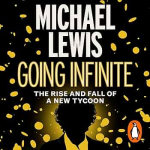- Thread Author
- #81
Give your father a huge tick from me, as an early childhood teacher! One of the most important things a parent can do for their children is read to them.My father read to us kids in very expressive and entertaining style (much as I read to you as a little tacker). Classics like Gulliver's Travels, Robin Hood and One Thousand and One Nights over many, many nights.
I think my love of books might stem from that in a big way. Always been happy to slip between firm covers and be absorbed for hours at a time.
The move from paper to electronic media for attention grabbing activities is a greater loss than any young person who does not read books could ever realise. Building your own imagination instead of being given a choice of ideas to select from is no small thing.
One of the best parts of being an infant teacher, is reading funny stories to children and to be able to put on all sorts of expressive and sometimes silly voices. Mem Fox, Roald Dahl, Tony Ross, Margaret Mahy, Pamela Allen, Babette Cole, Aaron Badely and Michael Salmon - are good for reading to young children. Many of my female teaching colleagues were too embarrassed to be silly. I used to stand on tables and jump off them to add dramatic effect. Plus run out of the room!

